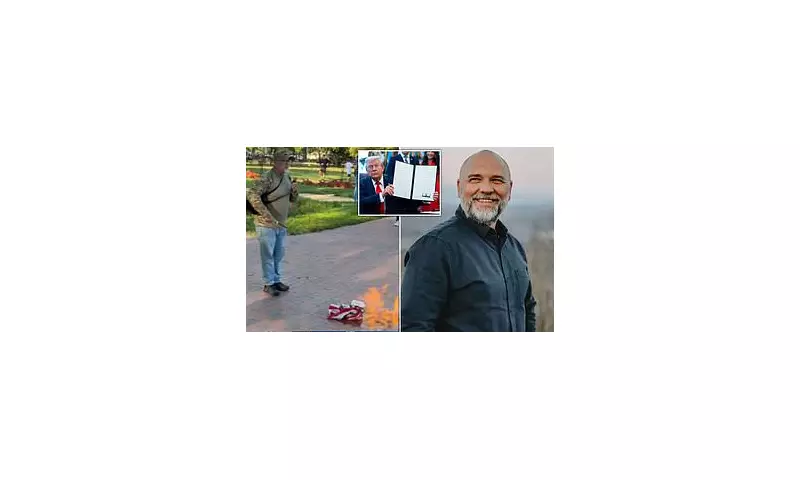
A decorated United States Army veteran is facing serious federal charges following a dramatic public protest where he set fire to a US flag altered to include former President Donald Trump's name.
The incident, which was captured on video and has since gone viral, shows the veteran, identified as Jay Carey, burning the modified banner in a stark act of political defiance. Carey, who served his country, now finds himself at the centre of a legal and cultural firestorm that pits national symbolism against the right to protest.
The Incident That Sparked Outrage
Carey allegedly burned the flag during a public demonstration, an act he claims was a protected form of political speech under the US Constitution's First Amendment. The flag in question was not a standard Stars and Stripes but had been visibly altered to incorporate the name and imagery associated with Donald Trump, blurring the lines between national symbol and political paraphernalia.
Despite this distinction, federal authorities have pursued charges under US flag desecration laws, arguing the act was intended to incite outrage and fell outside protected speech.
A Veteran's Defence: Free Speech vs. Patriotism
In a powerful statement, Carey defended his actions, stating his service was precisely to protect the very freedoms he was exercising. 'I fought for the right to express myself, even if my message is unpopular or makes people uncomfortable,' he was quoted as saying. His supporters have rallied behind him, framing the prosecution as a politically motivated attack on dissent.
Conversely, the act has been met with fury from veterans' groups and Trump supporters, who view it as a profound disrespect to the nation and those who have died for it. The case has become a lightning rod, deeply dividing public opinion across the United States and attracting attention in the UK.
The Complex Legal Battle Ahead
The prosecution's case hinges on nuanced legal arguments about the definition of a 'flag' and the intent behind its desecration. Legal experts are watching closely, as a conviction could set a significant precedent for the limits of protest and symbolic speech in a deeply polarized political climate.
This case echoes the landmark 1989 Supreme Court decision in Texas v. Johnson, which affirmed that flag burning is a form of symbolic speech protected by the First Amendment. However, the alteration of the flag with a political figure's name introduces a new, untested element into the legal fray.
As the case proceeds, it forces a national conversation on what patriotism means in modern America: is it unwavering respect for national symbols, or is it the vigorous defence of the right to challenge and critique those in power?





